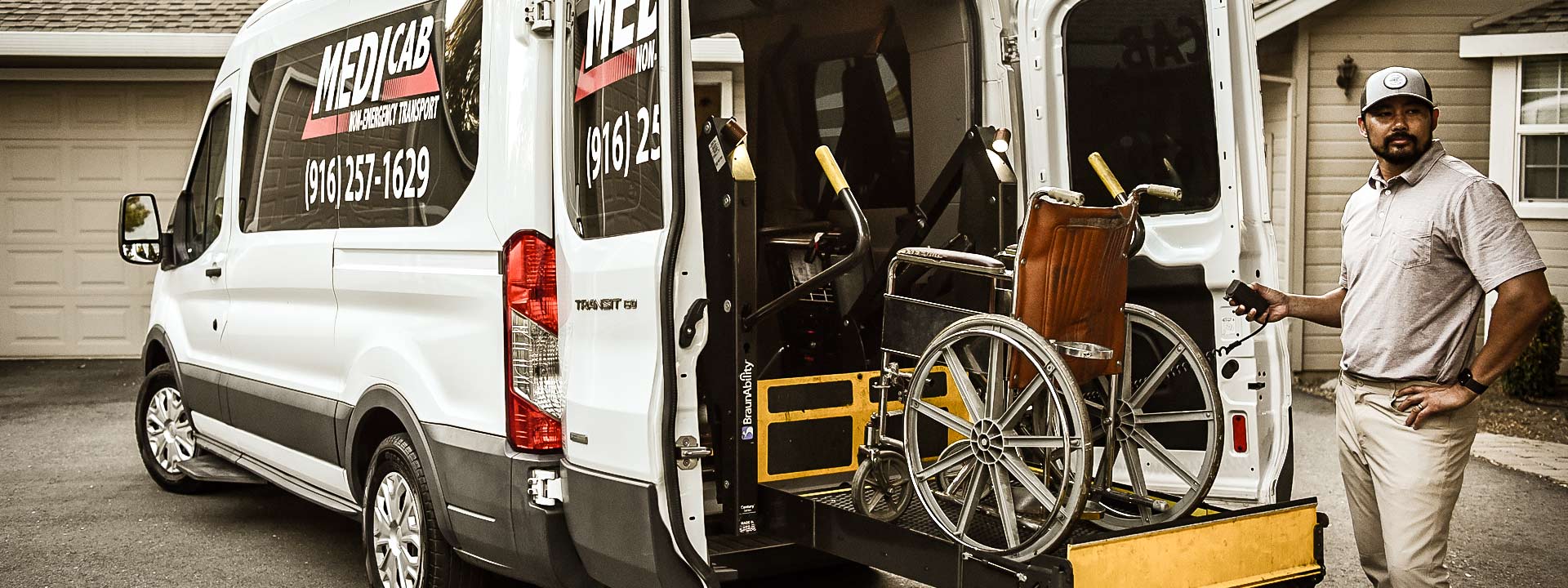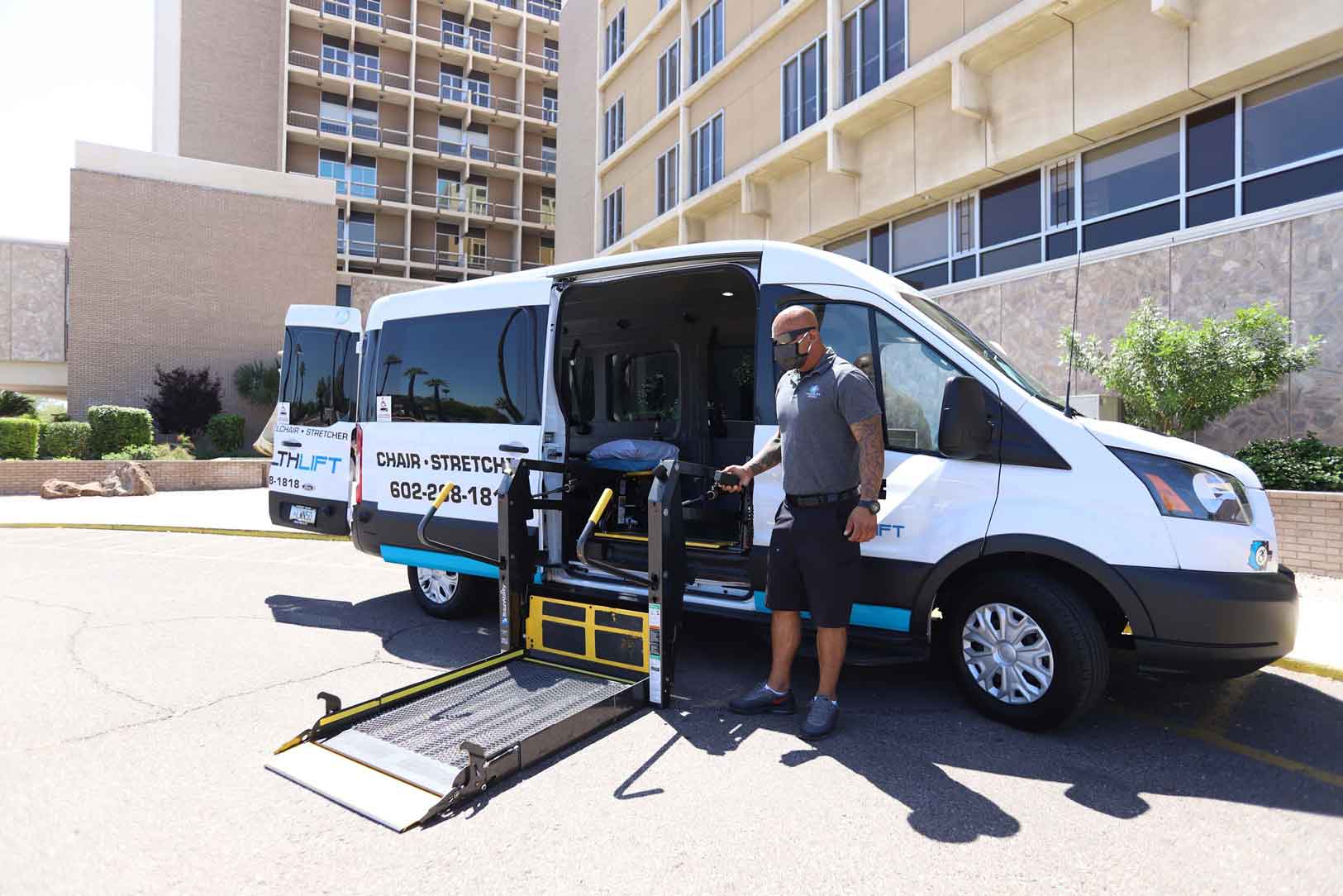Efficient Medical Transportation Services Near Me: Your Accessible Solution
Efficient Medical Transportation Services Near Me: Your Accessible Solution
Blog Article
Available and Affordable Medical Transportation Options for Seamless Wellness Support
In the world of health care, the ease of access and price of medical transport are critical in ensuring people can access the care they require when they need it. The capability to seamlessly browse transportation choices can significantly influence a person's capacity to receive prompt medical interest, follow-up treatment, and overall health. From non-emergency medical transport solutions to innovative remedies like telehealth, the landscape of medical transport is developing to fulfill the diverse requirements of patients. Thinking about the importance of this element in health care shipment, discovering the array of choices readily available becomes necessary for addressing gaps in availability and price.
Non-Emergency Medical Transportation Services

These services are staffed by trained professionals who prioritize individual convenience and safety and security throughout transportation. Vehicle drivers are geared up to deal with individuals with varying medical requirements and make sure that all journeys are worry-free and smooth - Medical Transportation Services Near Me. In addition, non-emergency clinical transport solutions usually make use of customized lorries that are wheelchair-accessible, making them ideal for a variety of people with various flexibility needs
Volunteer Motorist Programs
Volunteer motorist programs contribute in supplying transportation support for individuals looking for non-urgent treatment. These programs depend on the generosity of volunteers that contribute their time and automobiles to aid transport people to and from medical consultations. By making use of volunteer drivers, organizations can offer an affordable solution for people who may not have accessibility to trustworthy transportation.
One of the key advantages of volunteer chauffeur programs is the personalized treatment and attention that people get. Unlike conventional transport services, volunteer drivers usually establish a relationship with the people they assist, producing a caring and supportive atmosphere during what can be a difficult time. Additionally, volunteer motorist programs can help connect the gap for people living in country or underserved areas where mass transit choices might be limited.
Public Transport Options

Among the essential benefits of public transportation is its extensive schedule in metropolitan and country areas alike. This considerable network allows individuals from varied backgrounds to travel to clinical appointments with family member convenience. Additionally, public transport systems are often geared up to fit people with disabilities, supplying obtainable travel options for those with wheelchair obstacles.

Ride-Sharing and Transportation Network Business
The development of contemporary transport alternatives for clinical objectives expands past typical public systems like trains and buses to incorporate the cutting-edge world of ride-sharing and transport network firms. Ride-sharing solutions such as Uber and Lyft have actually reinvented the method individuals take a trip to medical appointments, providing benefit and versatility to clients that may not have accessibility to their lorries or typical mass transit. These systems permit individuals to ask for an experience with the touch of a button on their smartphones, giving door-to-door service that can be specifically useful for people with movement challenges or those calling for assistance.
Transportation network firms try this out (TNCs) have also played a significant role in linking the space in medical transportation services. Firms like Veyo and RoundTrip specialize in non-emergency clinical transportation, accommodating clients that require a greater level useful during their journeys to clinical centers. By partnering with medical care providers and insurance providers, TNCs ensure that clients can access trusted and timely transport solutions, ultimately adding to enhanced health and wellness outcomes and individual fulfillment.
Telehealth and Digital Examinations
Enhancing medical care accessibility and convenience, telehealth and online assessments have actually emerged as essential components in contemporary clinical practices, transforming the means patients interact with health care providers. Telehealth leverages modern technology to assist in remote interaction in between people and healthcare experts, providing a wide array of services such as online assessments, remote monitoring, and electronic prescriptions. Virtual consultations allow individuals to look for medical suggestions, diagnosis, and therapy from the comfort of their homes, eliminating the need for physical check outs to medical care facilities. This method not only saves time and decreases transport expenses for individuals but also enhances the overall effectiveness of healthcare delivery.
Additionally, telehealth plays a critical duty in extending medical services to underserved neighborhoods, backwoods, and individuals with restricted mobility. By breaking down geographical barriers and increasing health care outreach, telehealth promotes very early treatment, connection of treatment, and person engagement. As technology remains to advancement, telehealth is positioned to play a progressively considerable function fit the future of health care delivery, cultivating enhanced health and wellness results and individual contentment.
Verdict

From non-emergency medical transport solutions to ingenious solutions like telehealth, the landscape of clinical transport is progressing to satisfy the varied requirements of clients.Non-Emergency Medical Transport Services assist in the timely and secure transport of people requiring non-urgent clinical care to and Get More Information from medical care centers.The evolution of contemporary transport choices for clinical functions extends past typical public systems like buses and trains to incorporate the cutting-edge world of ride-sharing and transport network firms.Transportation network companies (TNCs) have additionally played a substantial function in bridging the gap in medical transport services. Non-Emergency Medical Transport Solutions, Volunteer Chauffeur Programs, Public Transport Options, Ride-Sharing and Transportation Network Business, and Telehealth and Virtual Consultations all play a crucial duty in dealing with transportation barriers to medical care accessibility.
Report this page